‘We haven’t scratched the surface yet,’ says WeWork expansion director
WeWork opened its first Manchester location to members last week, operating its popular coworking model within 60,000 sq ft of offices in No1 Spinningfields, and is preparing for its second opening in Q2 next year, according to director of expansion Mark Goldfinger.
See below for gallery of images from Place’s exclusive tour of WeWork in No1 Spinningfields
The business was founded seven years ago in New York, and is now valued at £15bn with 250 branches across the world. The rapid opening of sites has led WeWork to become known as an office sector disruptor, and according to Bloomberg research released this month, next year the company is set to become London’s biggest private sector occupier by sq ft, with 3.5m sq ft due to be occupied, putting it above serviced office competitor Regus, and the major banks.
The coworking giant has now set its sights on the regions; earlier this year WeWork announced that Manchester was the chosen city for its first UK site outside of London, and signed for 60,000 sq ft in No1 Spinningfields. As fit-out of that location began, a second deal for 40,000 sq ft in One St Peter’s Square was confirmed. WeWork is already taking bookings for St Peter’s, and is planning to open in the second quarter of next year.
- Reception at No1 Spinningfields
- Shared kitchen facilities offer beer on tap at WeWork Spinningfields
- Floors largely split into private offices
“Manchester was the obvious choice for our second city, we just had to be there,” Goldfinger told Place. “The market has been very welcoming, and we’re currently at 70% capacity for No1 Spinningfields, ahead of opening. WeWork generally reaches 90% occupancy at each location within a year.”
No1 Spinningfields has room for 1,250 individual WeWork ‘members’, rather than tenants, who can choose to either hot desk, take a dedicated desk, or rent an office suite, with access to common areas and shared kitchen facilities. Membership is on a monthly basis and can be used flexibly across all venues; for £33 a member can get two days in a physical location, and access to WeWork’s networking app. In Manchester, hot desks are priced at around £240/month, and £460/month for a private office.
WeWork has long been rumoured to be searching for a third base in Manchester, and while Goldfinger insisted that the current focus was on “getting No1 and St Peter’s right for our members” rather than hunting for more space, he said: “We haven’t even fully scratched the surface yet.”
Those new to the coworking phenomenon may be expecting large open-plan rooms filled with a mix of individual freelancers to whole companies working alongside each other. However, the ‘coworking’ description is something of a misnomer. In No1, WeWork is split across two and a half floors; the hot desking space is kept to the mezzanine level on the first floor, while the majority of the facility is made up of private office suites.
How then does WeWork differentiate itself from serviced office operators such as Regus, who also provide small office pods, and ‘plug in and go’ desk facilities?

Mark Goldfinger, WeWork’s director of expansion
“We don’t call ourselves coworking, or just offices, we don’t want to be typecast,” said Goldfinger. “What we do is create a collaborative working environment.”
This collaboration is mainly encouraged through the WeWork app which all tenants are signed up to, and is arguably WeWork’s main market differentiator. The app allows members with complementary skills to be identified and connect, no matter where they’re based in the world.
“70% of members did some kind of collaboration through the app last year,” Goldfinger said. “But the app is complementary to the physical environment, people still want the human experience, the opportunity to have impromptu meetings.”
Goldfinger wouldn’t be drawn on whether WeWork was likely to open in other North West cities such as Liverpool or Chester, instead maintaining: “We really want to make sure we’re providing the best experience for the members we already have.”
The dominance of private space is also true for other coworking operators. Nearby in Manchester, Central Working has been operating out of a 10,000 sq ft unit on Deansgate since 2014, now home to a mix of 150 businesses.
Chief executive Grant Powell claims Central Working as the first coworking space in the city and said it was seen as a “pioneer” when it first opened. Central Working also offers a mix of hot desks and suites, but according to Powell, 80% of the space it offers across its 10 locations are private offices for between four and 18 people.
“We found that no matter the size of the business, from two people upwards, most want privacy. It’s a misconception that coworking is all open plan.”
Like WeWork, encouraging “collaboration” is at the heart of Central Working’s business model. “We see ourselves as a hospitality business operating in the office sector,” Powell said. “We advise on how to grow our members’ companies, build rapport, develop educational platforms. We try to re-engineer a sense of community, in the face of technology.”
Powell seems to have no sour grapes against rival business WeWork, which despite being established at around the same time has grown into such a global behemoth.
“We’re excited to see others have come into the Manchester market, it proves we were right to do so.
“Healthy competition is good, it keeps everyone sharp and on their toes.” Powell said. “WeWork has educated the world.”
Click any image below for gallery of images inside WeWork’s first Manchester venue
- Reception at No1 Spinningfields
- WeWork at No.1 Spinningfields
- Shared kitchen facilities offer beer on tap at WeWork Spinningfields
- Soundproof booths are provided for phone calls
- WeWork's office was designed by Interior Architects, fitted out by TSK
- Floors largely split into private offices


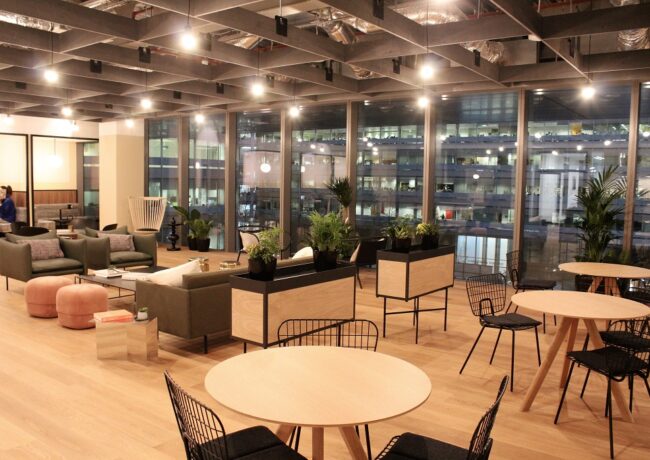
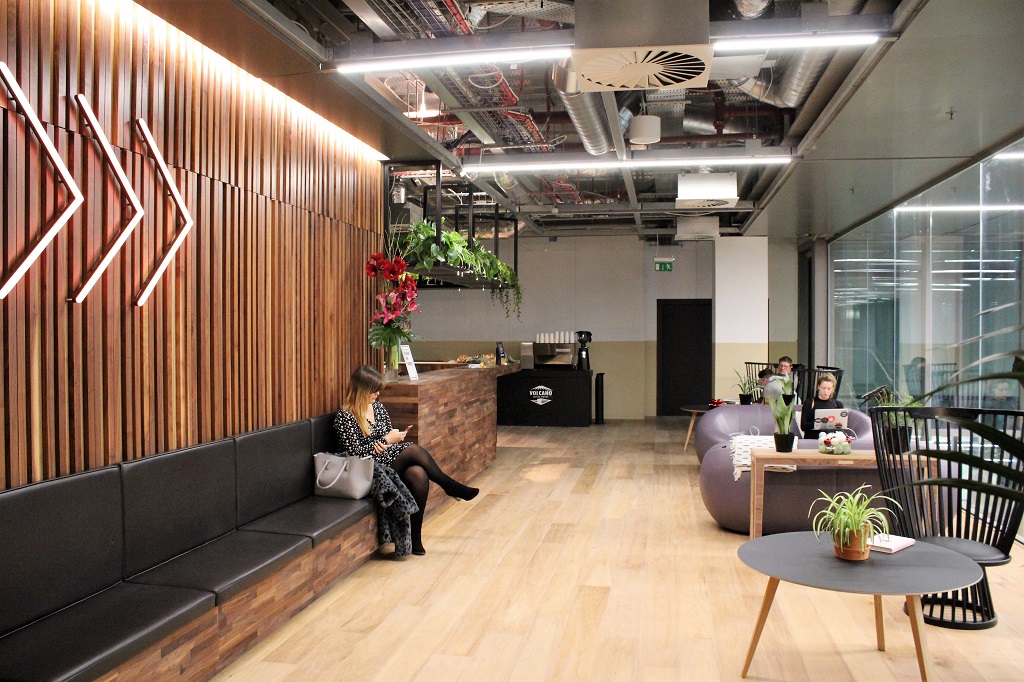
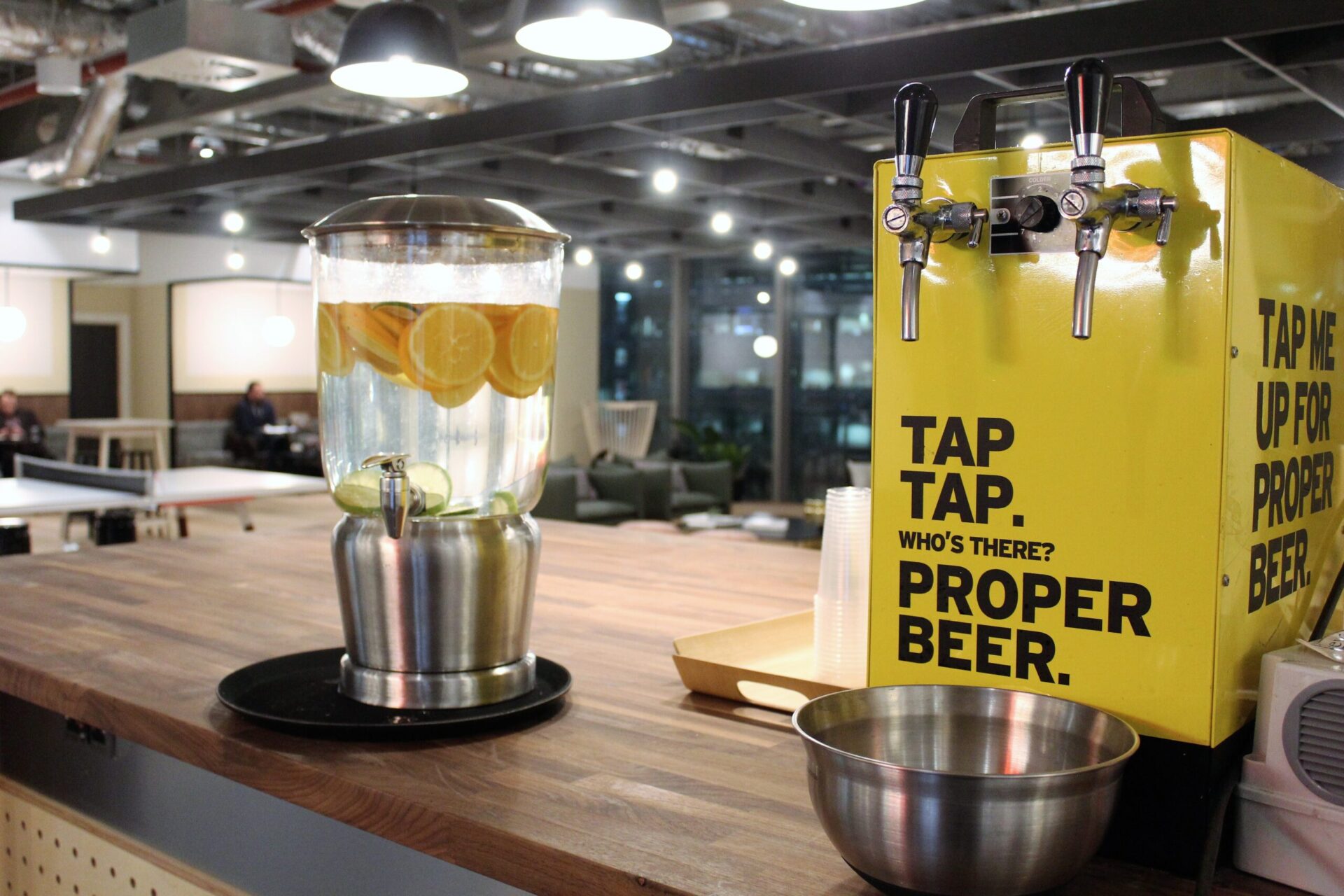
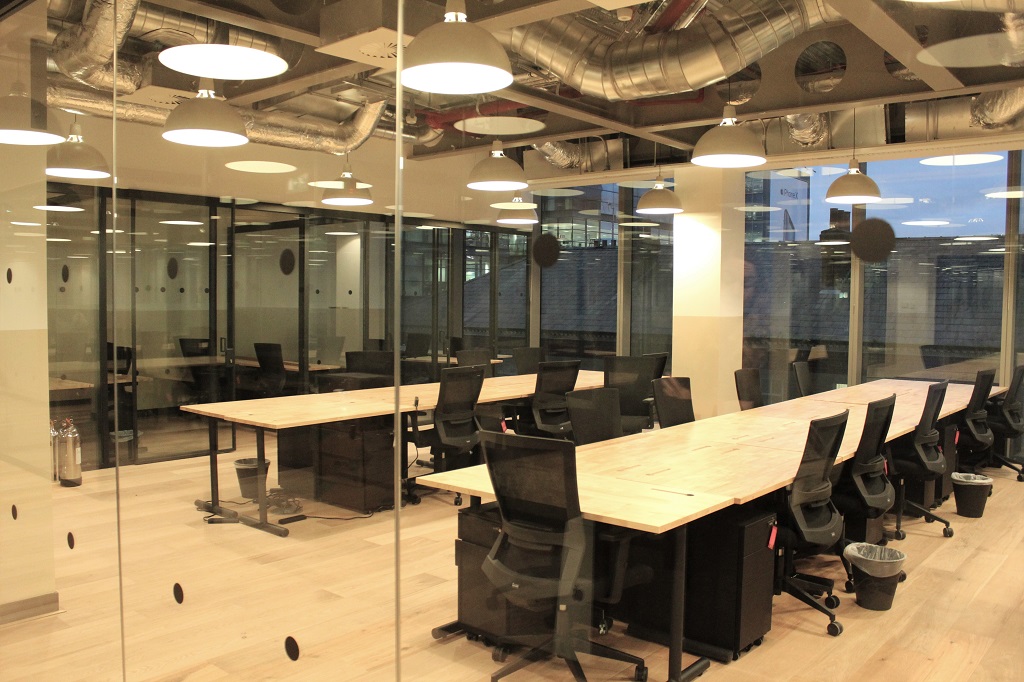
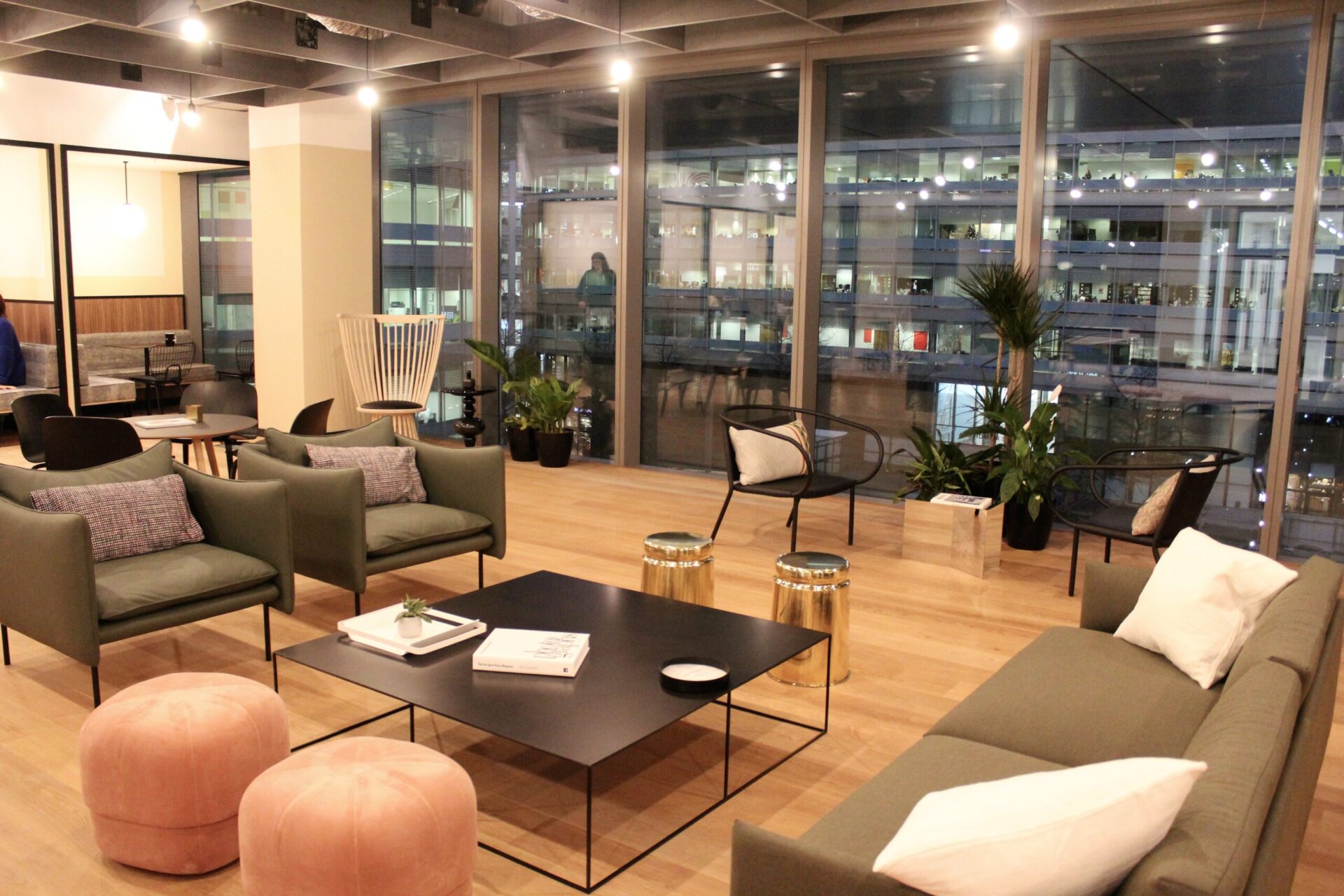
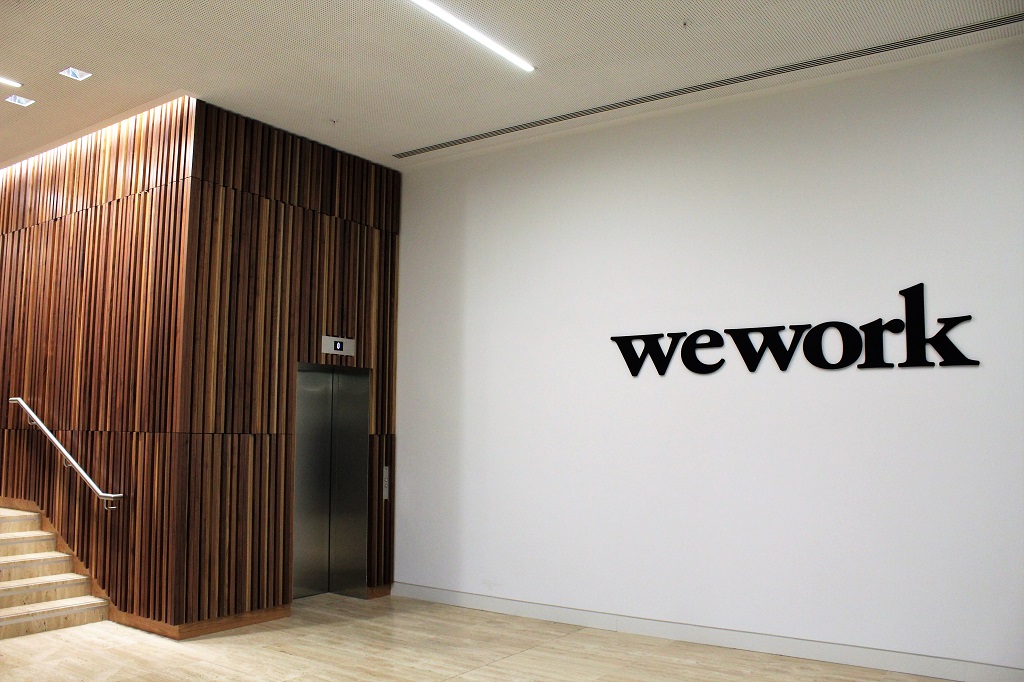
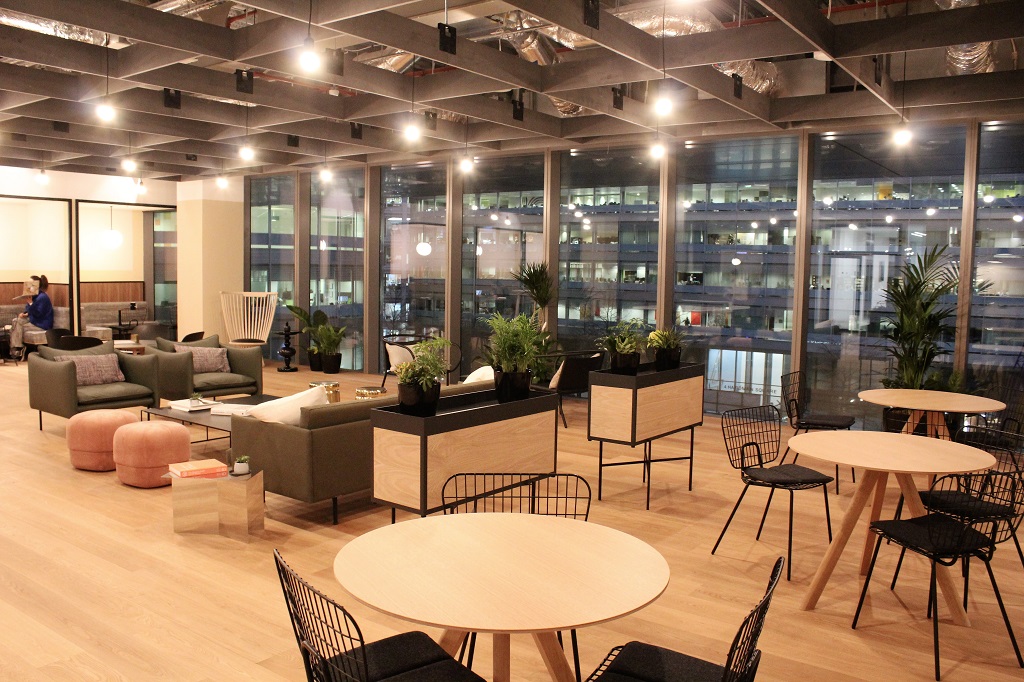
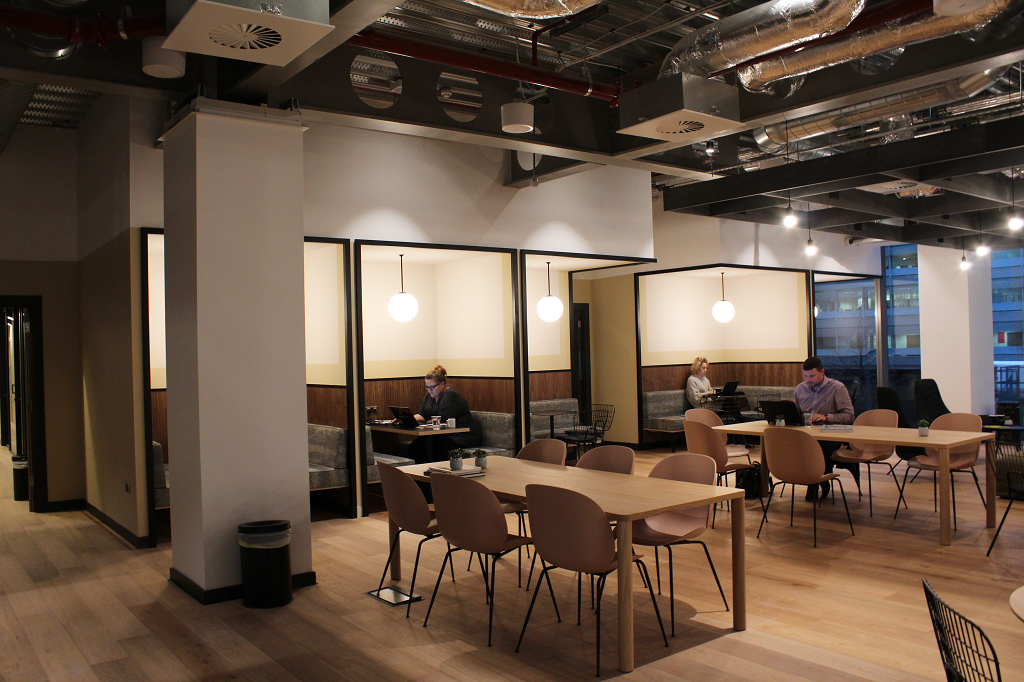
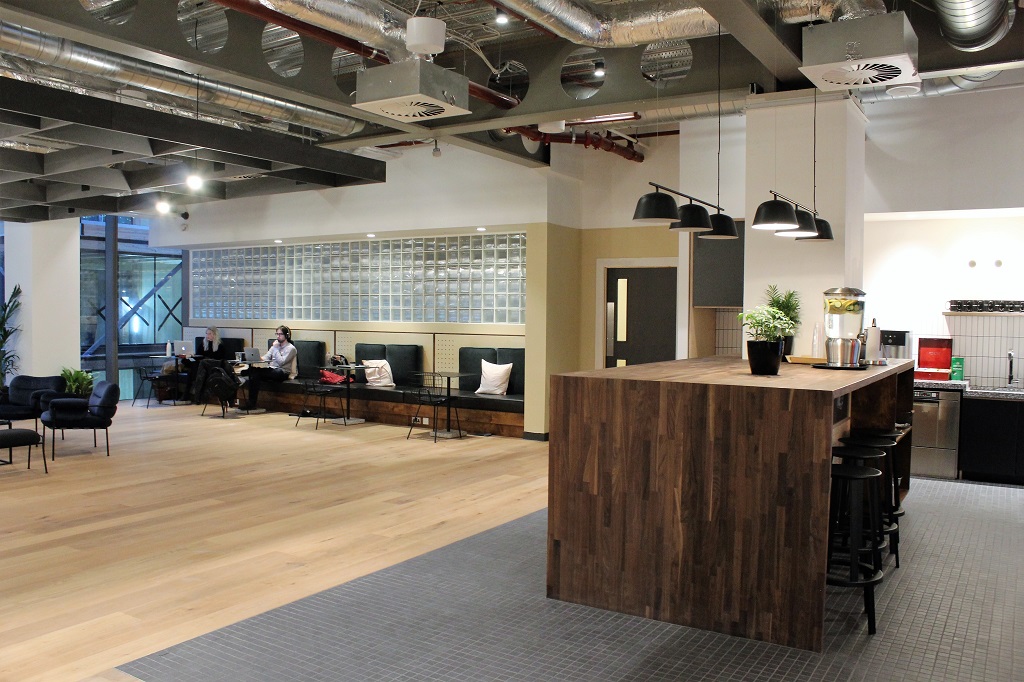
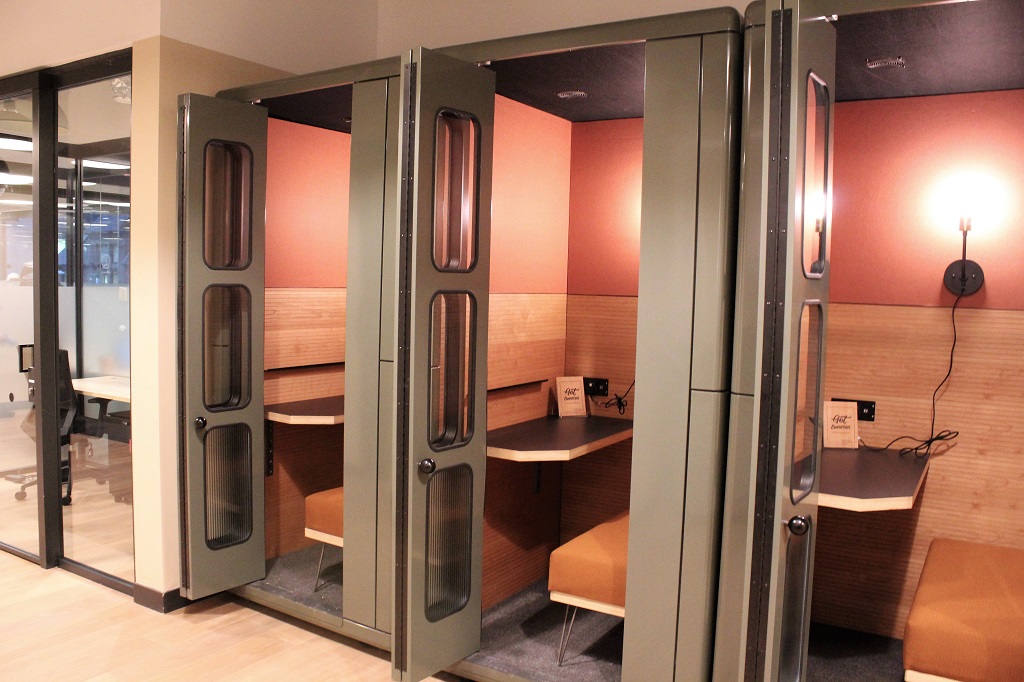
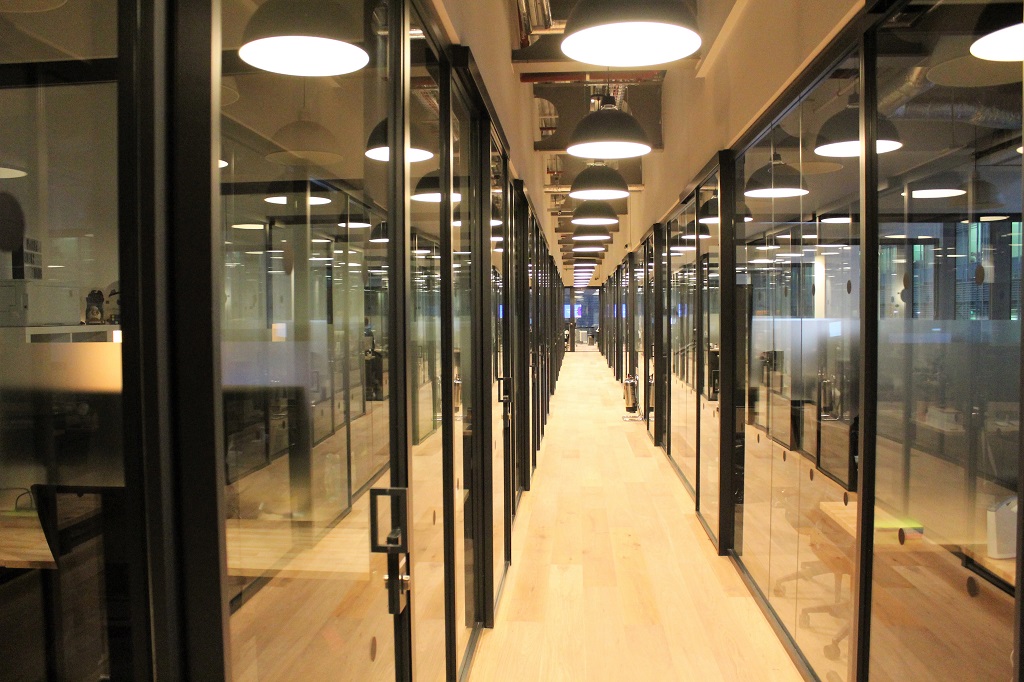

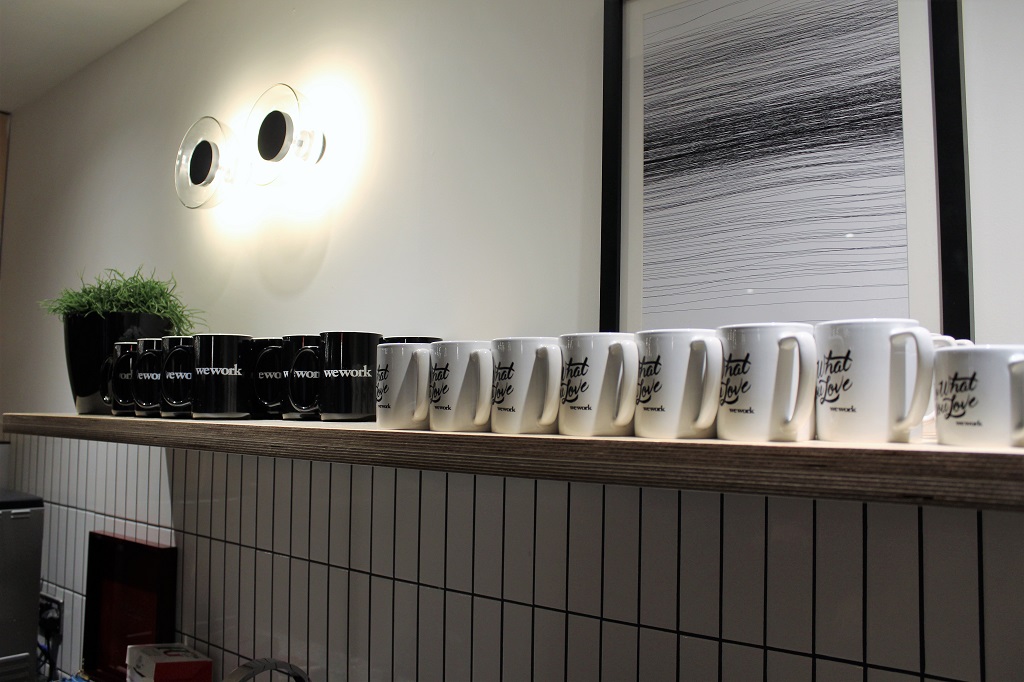


Looks drab
By Mikes mate
Looks like a call centre…….or a battery chicken shed
By Anneka P